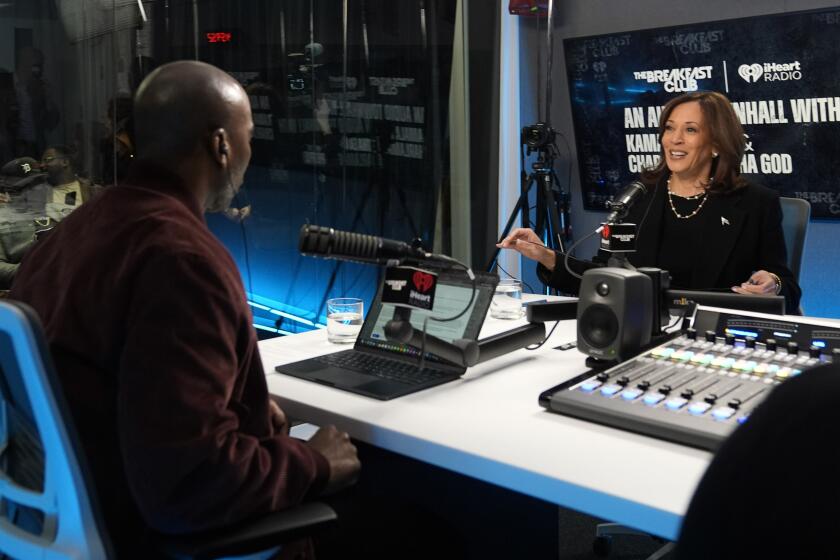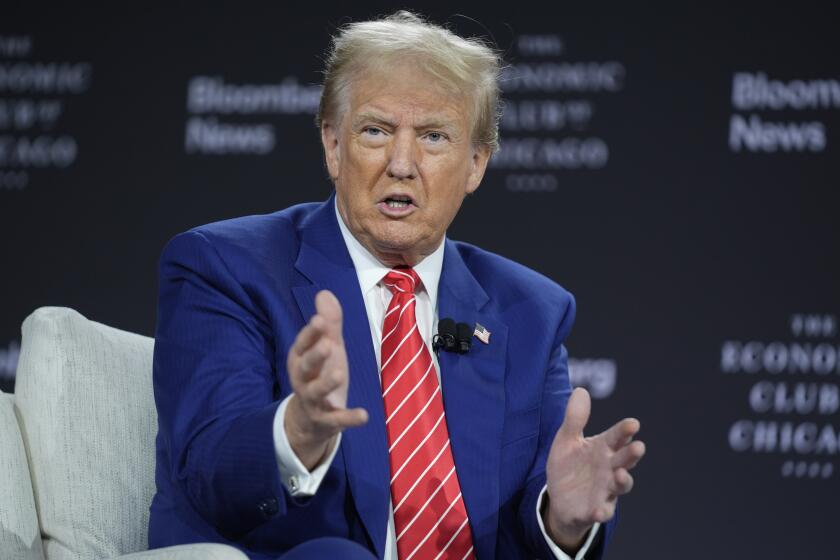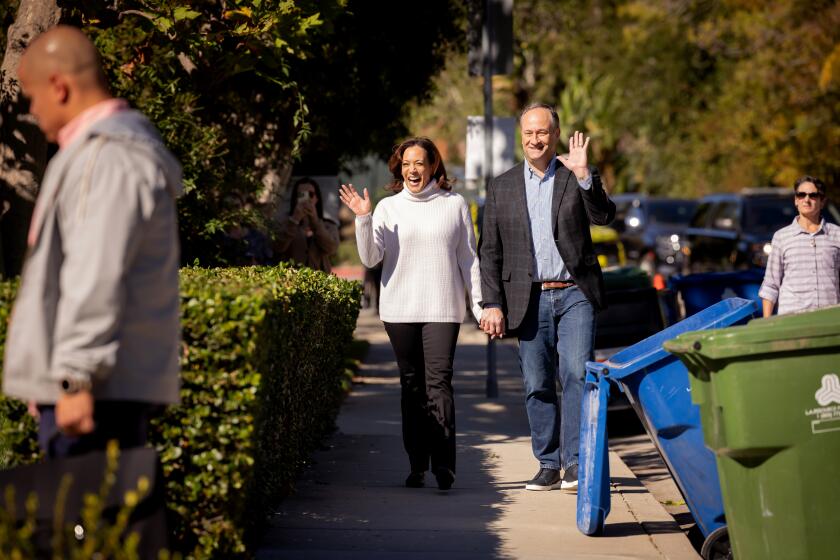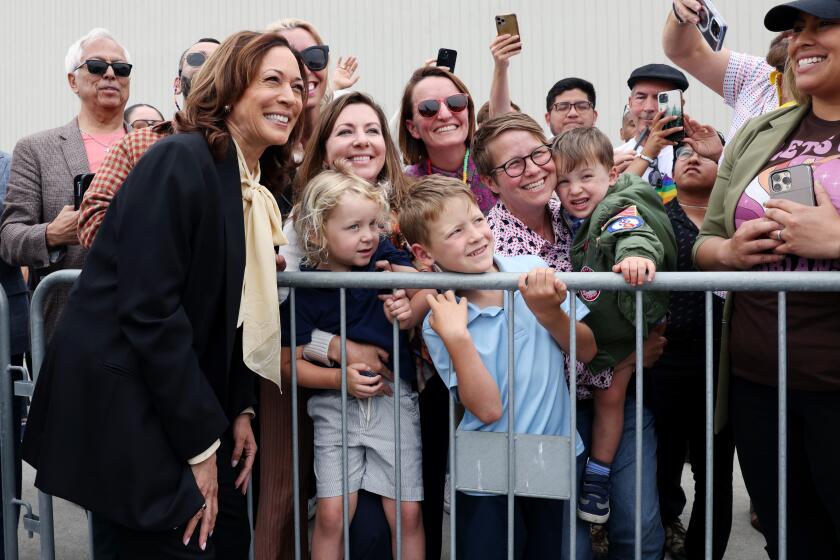Lake blames Gallego for border woes, as he vows to protect abortion rights in Senate debate in Arizona

Republican Senate candidate Kari Lake repeatedly reminded viewers Wednesday of her three-decade career on Arizona television, looking to harness her connection with voters and overcome Democrat Ruben Gallego’s portrayal of her as a liar in the only debate of the closely watched race.
Lake proved comfortable on camera in contrast to Gallego, a military veteran who occasionally tripped on his words. The hourlong forum highlighted the candidates’ differences on border security, abortion and taxes.
Lake accused Gallego of having an “extreme makeover” to downplay his progressive House record, and sought to tie him to disorder on the U.S.-Mexico border.
Gallego called Lake a liar, pointing to her discredited claim that she’d won the 2022 race for governor. “She will do anything and say anything to gain power, including lying,” he said.
Lake, a favorite of the populist right since leaving her news career, has struggled to redefine herself since losing in 2022.
Gallego, who represents largely Latino areas of Phoenix in Congress, has played up his military service and up-by-the-bootstraps past.
The debate gave Lake a chance to reset a race in which polls and observers suggest she’s trailing. For Gallego, it was an opportunity to introduce himself to the voters who still don’t know him.
Much of the debate was devoted to immigration and border security. Lake noted Gallego’s past criticism of a border wall, linked him to President Biden’s border policies, and said he supports “open borders” and “voted against border security every step of the way.”
“Your votes on the border have empowered the cartels,” she said, calling border crossings an “invasion.”
Gallego countered that borders are necessary and walls are an important part of security, when coupled with sufficient staffing and technology. He faulted Lake for opposing a bipartisan border security bill, which died after former President Trump pressured Republicans to oppose it.
“You’ve been to Mar-a-Lago more than you’ve been to the border,” Gallego said of Lake’s visits to Trump’s Florida resort.
The race is one of a few that will determine which party controls the U.S. Senate, where Democrats are in an uphill battle to retain their slim majority. The winner in Arizona will replace independent Sen. Kyrsten Sinema, who was elected as a Democrat in 2018 before her relationship with the party’s base ruptured.
Gallego and Lake are trying to win over a small share of Republicans and independents who are open to splitting their votes on the ballot and have been key to Democrats’ rise in Arizona, which in the last decade has gone from a GOP stronghold to a battleground state.
Gallego has focused on abortion rights after a state Supreme Court ruling outlawed virtually all abortions until the Legislature rolled the ban back to after 15 weeks of pregnancy. Lake supports stricter limits.
“She said she was thrilled that Roe was overturned. ... Do we want politicians like Kari Lake to be involved in these very, very difficult decisions when they should be left to the woman and the family?” Gallego asked.
Lake said she would not vote for a federal abortion ban, and pointed to a ballot measure that will go to Arizona voters next month. “We have the choice as Arizonans to decide what our abortion law will be,” Lake said.
Lake backs Trump and his lie that fraud cost him the 2020 election. She has never conceded losing her race for governor, fighting the loss in court even after entering the Senate race.
Gallego, the son of immigrants from Mexico and Colombia, was raised in Chicago by his mother and enlisted in the Marine Corps Reserve during a break from earning a degree at Harvard. He fought in Iraq in 2005 in a unit that sustained heavy casualties, including the death of his best friend.
He pointed repeatedly to his military service during the debate.
Cooper and Sandoval write for the Associated Press.
More to Read
Get the L.A. Times Politics newsletter
Deeply reported insights into legislation, politics and policy from Sacramento, Washington and beyond. In your inbox three times per week.
You may occasionally receive promotional content from the Los Angeles Times.










